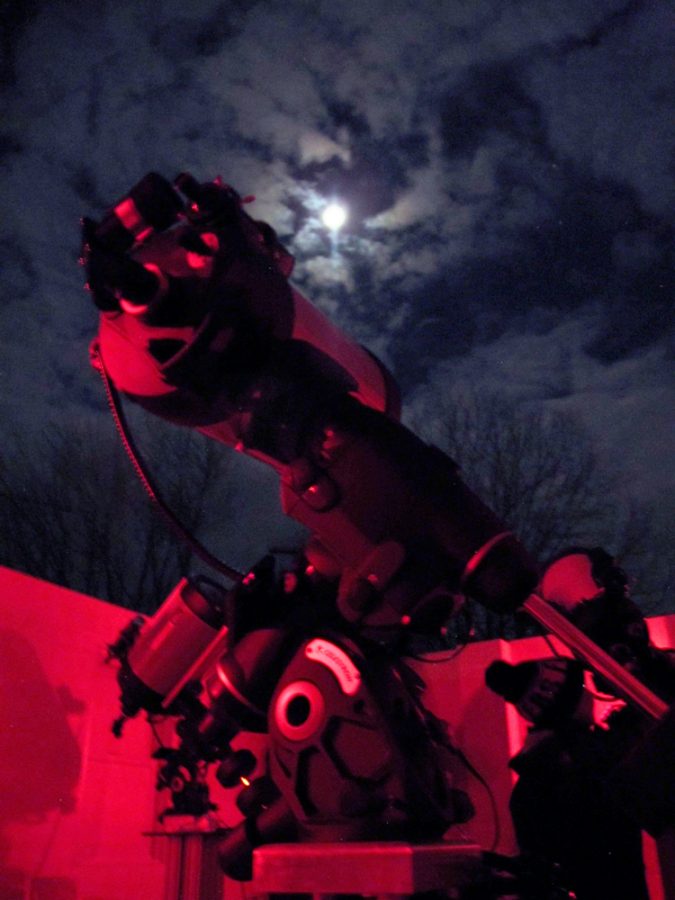Shooting for the moon: Children and parents study the stars at Observatory’s Family Night
February 9, 2017
The annual Family Night at the University Observatory was held on Feb. 3 from 7–9:30 p.m. The event was hosted by the physics and astronomy department and featured many activities for children to learn about a variety of celestial objects.
Children had the opportunity to make astrological arts and crafts, as well as participate in an interactive talk about stars given by Professor of Physics Ned Ladd. A guest performance from Grammy-nominated singer/songwriter Billy Kelly was also featured.
Ladd has enjoyed inviting the public to annual family-oriented learning events since his arrival at the University in 1997. Ladd explained that he had young children at the time and believed that fun activities would be a fresh new way of developing children’s interest in science. He expressed his enjoyment of seeing kids anxiously tell their parents what they had learned after participating in the activities.
“There are not a lot of opportunities to do science in a fun environment with your parents,” Ladd said.
Lab Coordinator of Physics and Astronomy Kristen Recine echoed these sentiments, emphasizing the importance of starting a child’s scientific career at a young age.
“When you’re a kid, you wonder. It is so important to introduce them to the idea that there are things outside of their world and their daily life,” Recine said.
The staff who helped run Family Night developed the astrological theme, designed a craft that would entertain the children in attendance, and divided up responsibilities between the different stations. According to Recine, the event took about two months to plan.
Vidur Karani ’19 was one of the students who volunteered to help facilitate the event by teaching kids how to look at the moon through telescopes. Karani is a teaching assistant for astronomy, a job that refined the skills he passed on to the children at the event.
“Helping people learn helps you learn more,” Karani said.
Teaching assistant and physics major Payton Johnson ’19 was in agreement, explaining how the family event was just as beneficial to the volunteers as it was to the children in attendance.
“It’s good practice to experience talking to people about science in simplistic terms, which is important for any scientist to have. I really love astronomy and love to get people just as excited as I am,” Johnson said.






















